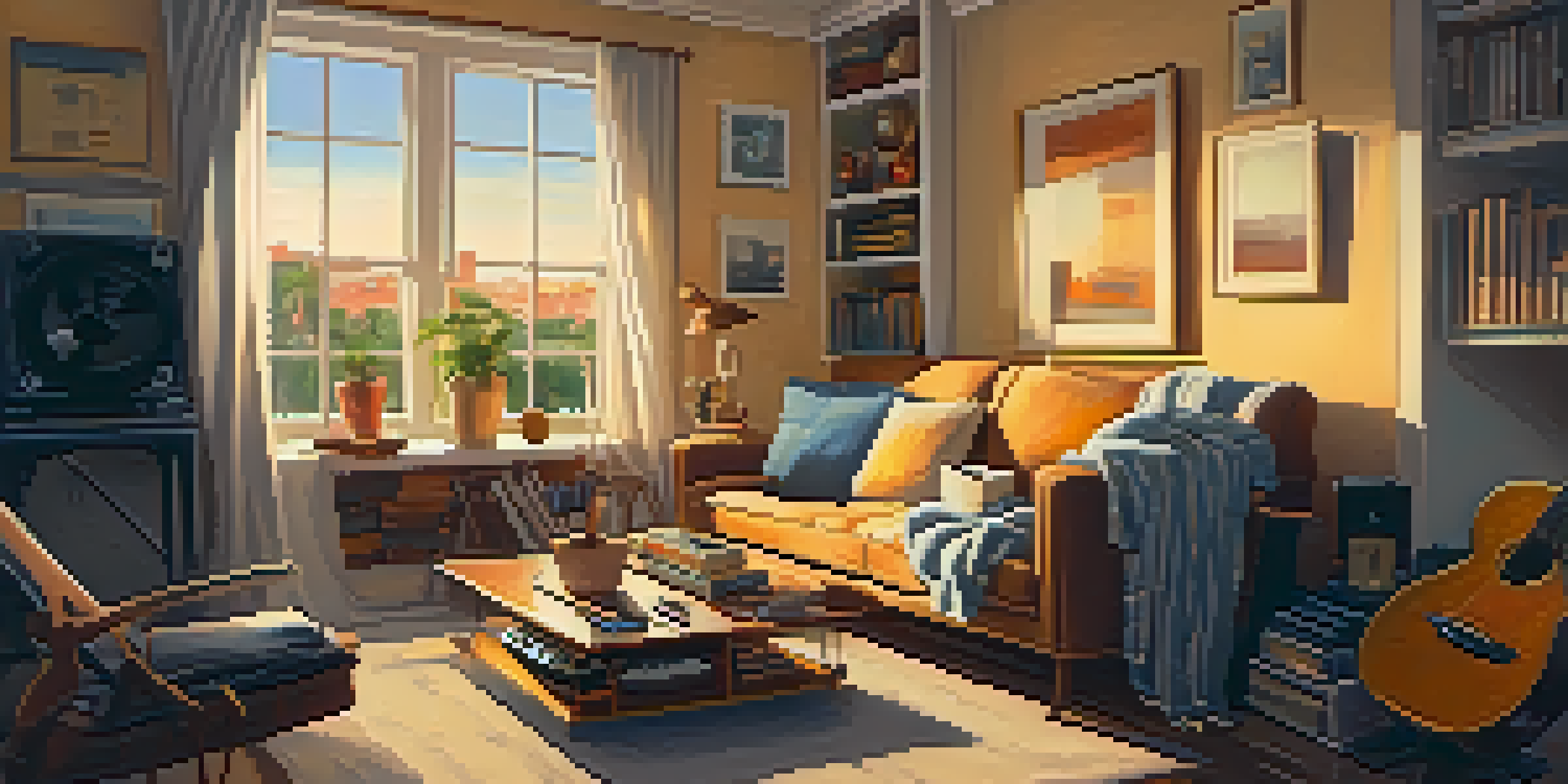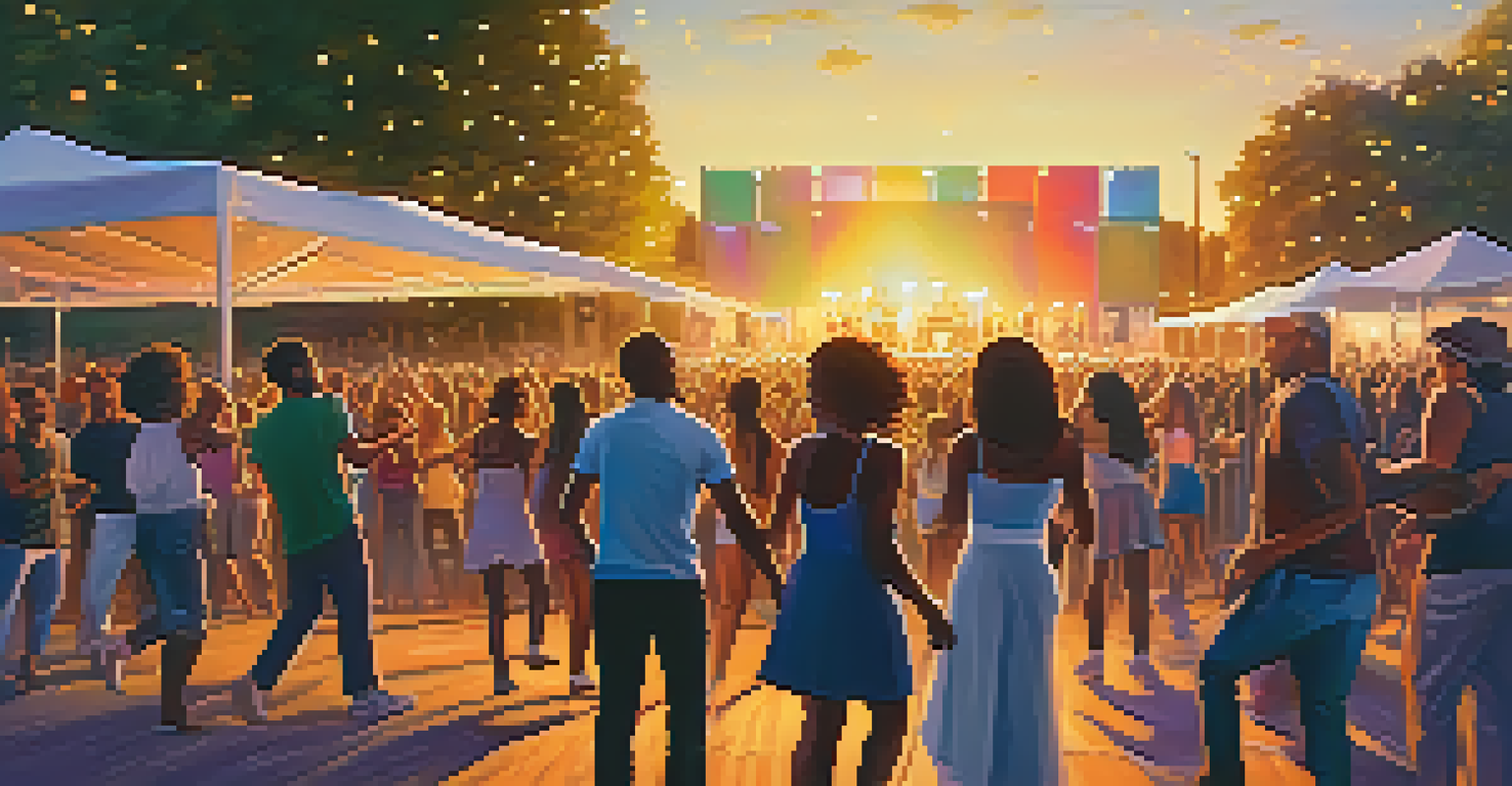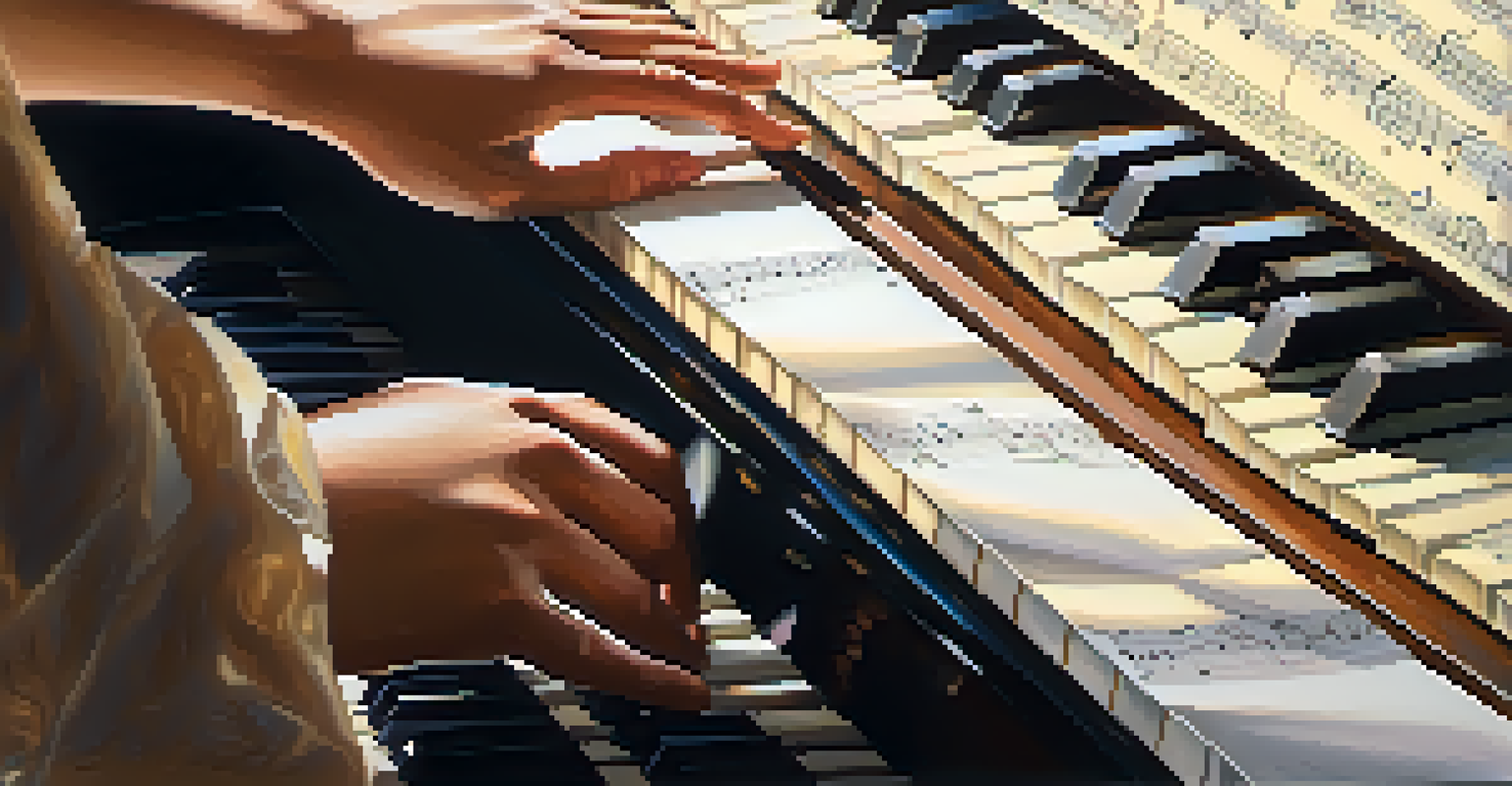Exploring Music's Role in Combating Loneliness and Isolation

Understanding Loneliness and Its Effects
Loneliness can feel like a heavy blanket, smothering our spirits and leaving us isolated. It’s not just about being alone; it’s the emotional pain that accompanies that solitude. Studies show that chronic loneliness can lead to serious health issues, both mental and physical, making it crucial to address.
Music can change the world because it can change people.
In a world so connected through technology, many still experience profound isolation. This paradox highlights a pressing need for effective interventions. One of the most powerful tools at our disposal? Music.
Music can resonate with our emotions, acting as a companion during tough times. It has the unique ability to touch our hearts and remind us that we are not alone in our feelings.
The Therapeutic Power of Music
Music therapy has gained recognition for its role in improving mental health. It’s not just about listening; it’s about engaging with music in a way that promotes healing. For those feeling lonely, participating in music therapy can foster a sense of belonging and community.

Research indicates that music can reduce anxiety and depression while boosting mood and self-esteem. When we listen to or create music, our brains release feel-good chemicals like dopamine, which can alleviate feelings of loneliness. This chemical reaction is akin to a warm hug for your mind.
Loneliness Affects Health
Chronic loneliness can lead to serious mental and physical health issues, making it essential to find effective ways to cope.
Moreover, music often becomes a vehicle for expression. It allows individuals to convey feelings they may struggle to articulate, creating connections through shared experiences.
Connecting Through Shared Musical Experiences
Concerts, music festivals, and local jam sessions offer opportunities for connection through shared passions. When we enjoy music together, we bond over a common experience, breaking down barriers of isolation. It’s an instant community, where strangers become friends over a shared song.
Where words fail, music speaks.
Online platforms also provide spaces for individuals to connect through music. Virtual concerts and social media groups dedicated to specific genres allow people to engage, share, and even collaborate on musical projects. This digital interaction can be a lifeline for those feeling isolated.
Participating in these experiences can remind us that we are part of something larger than ourselves. It transforms our experience of music from a solitary activity into a communal one.
Music as a Form of Self-Expression
For many, creating music becomes an essential outlet for emotions. Whether it’s writing lyrics, playing an instrument, or singing, these creative acts allow individuals to process their feelings. This self-expression can be incredibly liberating, especially for those grappling with loneliness.
Artistic expression through music can also lead to greater self-awareness. By exploring our emotions in a creative way, we can better understand our own experiences and, ultimately, feel less isolated. It’s a journey of self-discovery that can foster deeper connections with ourselves and others.
Music Fosters Connection
Engaging with music, whether through therapy or shared experiences, can create bonds and alleviate feelings of isolation.
Additionally, sharing original music with others can create bonds that transcend loneliness. When we share our stories through song, we invite others into our world, opening the door for empathy and understanding.
The Role of Music in Different Cultures
Music is a universal language that transcends cultural boundaries. In many cultures, music plays a vital role in community gatherings, celebrations, and even healing rituals. This highlights how music can unite individuals, fostering connections that counteract feelings of loneliness.
Traditional songs often tell stories of shared experiences, struggles, and triumphs, reinforcing a sense of belonging. When we engage with music from different cultures, we not only appreciate its beauty but also connect with the emotions and experiences of others.
Embracing diverse musical traditions can enhance our understanding of humanity. It reminds us that while our individual experiences may differ, the emotions we feel are often strikingly similar.
Music Recommendations for Combating Loneliness
Creating playlists tailored to lift your spirits can be an effective way to combat loneliness. Whether it’s upbeat pop, soothing classical, or nostalgic oldies, the right music can evoke positive emotions and memories. These playlists can become a go-to resource during tough times.
Exploring new genres and artists can also provide fresh perspectives and feelings. Sometimes, discovering a new favorite artist can spark joy and curiosity, pulling us out of our emotional ruts. Music streaming platforms make it easy to find curated playlists based on mood, which can be helpful.
Self-Expression Through Music
Creating and sharing music allows individuals to process emotions, promoting self-awareness and deeper connections with others.
Joining online music communities or forums can introduce you to like-minded individuals who share your musical tastes. Engaging in discussions about favorite songs or artists can create connections that help alleviate feelings of isolation.
The Future of Music in Combating Isolation
As technology continues to evolve, so does our relationship with music. Virtual reality concerts and AI-generated compositions are just the tip of the iceberg. These innovations may provide new avenues for connection and community in the face of loneliness.
The rise of social media has also transformed how we share and experience music. Platforms like TikTok and Instagram allow users to create and share music-related content, fostering a sense of belonging through shared creativity. This digital landscape can help bridge the gap between individuals.

Looking ahead, the challenge lies in harnessing these advancements to build meaningful connections. By embracing music as a tool for community and self-expression, we can continue to combat loneliness in an increasingly isolated world.